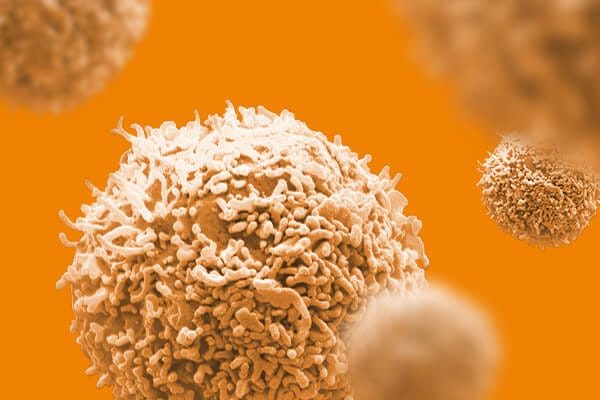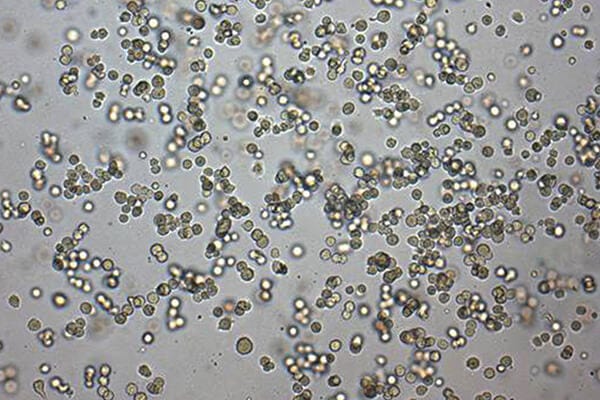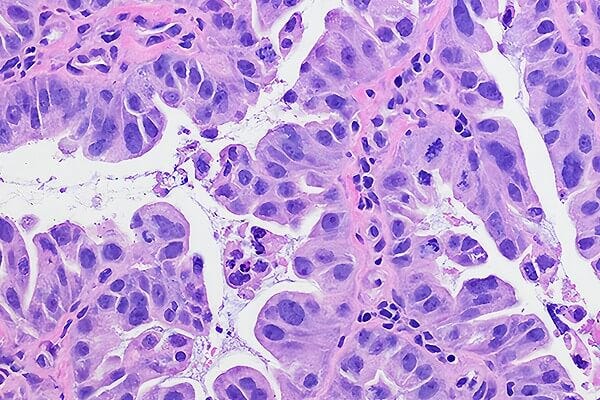Scientific Resources
-
 文献Liu C et al. (DEC 2010) Blood 116 25 5518--27
文献Liu C et al. (DEC 2010) Blood 116 25 5518--27Progenitor cell dose determines the pace and completeness of engraftment in a xenograft model for cord blood transplantation.
Two critical concerns in clinical cord blood transplantation are the initial time to engraftment and the subsequent restoration of immune function. These studies measured the impact of progenitor cell dose on both the pace and strength of hematopoietic reconstitution by transplanting nonobese diabetic/severe combined immunodeficiency/interleukin-2 receptor-gamma-null (NSγ) mice with lineage-depleted aldehyde dehydrogenase-bright CD34(+) human cord blood progenitors. The progress of each transplant was monitored over an extended time course by repeatedly analyzing the peripheral blood for human hematopoietic cells. In vivo human hematopoietic development was complete. After long-term transplantation assays (≥ 19 weeks),human T-cell development was documented within multiple tissues in 16 of 32 NSγ mice. Human T-cell differentiation was active within NSγ thymuses,as documented by the presence of CD4(+) CD8(+) T-cell progenitors as well as T-cell receptor excision circles. It is important to note that although myeloid and B-cell engraftment was detected as early as 4 weeks after transplantation,human T-cell development was exclusively late onset. High progenitor cell doses were associated with a robust human hematopoietic chimerism that accelerated both initial time to engraftment and subsequent T-cell development. At lower progenitor cell doses,the chimerism was weak and the human hematopoietic lineage development was frequently incomplete. View Publication -
 文献Giassi LJ et al. (AUG 2008) Experimental biology and medicine (Maywood,N.J.) 233 8 997--1012
文献Giassi LJ et al. (AUG 2008) Experimental biology and medicine (Maywood,N.J.) 233 8 997--1012Expanded CD34+ human umbilical cord blood cells generate multiple lymphohematopoietic lineages in NOD-scid IL2rgamma(null) mice.
Umbilical cord blood (UCB) is increasingly being used for human hematopoietic stem cell (HSC) transplantation in children but often requires pooling multiple cords to obtain sufficient numbers for transplantation in adults. To overcome this limitation,we have used an ex vivo two-week culture system to expand the number of hematopoietic CD34(+) cells in cord blood. To assess the in vivo function of these expanded CD34(+) cells,cultured human UCB containing 1 x 10(6) CD34(+) cells were transplanted into conditioned NOD-scid IL2rgamma(null) mice. The expanded CD34(+) cells displayed short- and long-term repopulating cell activity. The cultured human cells differentiated into myeloid,B-lymphoid,and erythroid lineages,but not T lymphocytes. Administration of human recombinant TNFalpha to recipient mice immediately prior to transplantation promoted human thymocyte and T-cell development. These T cells proliferated vigorously in response to TCR cross-linking by anti-CD3 antibody. Engrafted TNFalpha-treated mice generated antibodies in response to T-dependent and T-independent immunization,which was enhanced when mice were co-treated with the B cell cytokine BLyS. Ex vivo expanded CD34(+) human UCB cells have the capacity to generate multiple hematopoietic lineages and a functional human immune system upon transplantation into TNFalpha-treated NOD-scid IL2rgamma(null) mice. View Publication
过滤器
筛选结果
类别
- Educational Materials
- Areas of Interest
- Methods Library
Show More
Show Less
产品系列
- ALDEFLUOR 1 项目
- StemSpan 1 项目
Show More
Show Less
资源类别
- 文献 2 项目
Show More
Show Less
细胞类型
- B 细胞 134 项目
- CD4+ 84 项目
- CD8+ 48 项目
- Endoderm 1 项目
- Neural Cells 17 项目
- NK 细胞 79 项目
- PSC-Derived 18 项目
- PSC衍生 6 项目
- Regulatory 11 项目
- T Cells 56 项目
- T 细胞 252 项目
- 上皮细胞 47 项目
- 乳腺细胞 68 项目
- 先天性淋巴细胞 3 项目
- 内皮细胞 2 项目
- 前列腺细胞 7 项目
- 单核细胞 106 项目
- 多能干细胞 1692 项目
- 心肌细胞 3 项目
- 杂交瘤细胞 76 项目
- 树突状细胞(DCs) 59 项目
- 气道细胞 40 项目
- 癌细胞及细胞系 116 项目
- 白细胞单采样本 1 项目
- 白血病/淋巴瘤细胞 8 项目
- 真皮细胞 1 项目
- 神经元 136 项目
- 神经干/祖细胞 384 项目
- 神经细胞 2 项目
- 粒细胞及其亚群 61 项目
- 肝细胞 3 项目
- 肠道细胞 13 项目
- 肾脏细胞 2 项目
- 脑肿瘤干细胞 81 项目
- 血小板 1 项目
- 血浆 3 项目
- 调节性细胞 7 项目
- 造血干/祖细胞 779 项目
- 间充质干/祖细胞 133 项目
- 髓系细胞 99 项目
Show More
Show Less


 EasySep™小鼠TIL(CD45)正选试剂盒
EasySep™小鼠TIL(CD45)正选试剂盒





 沪公网安备31010102008431号
沪公网安备31010102008431号